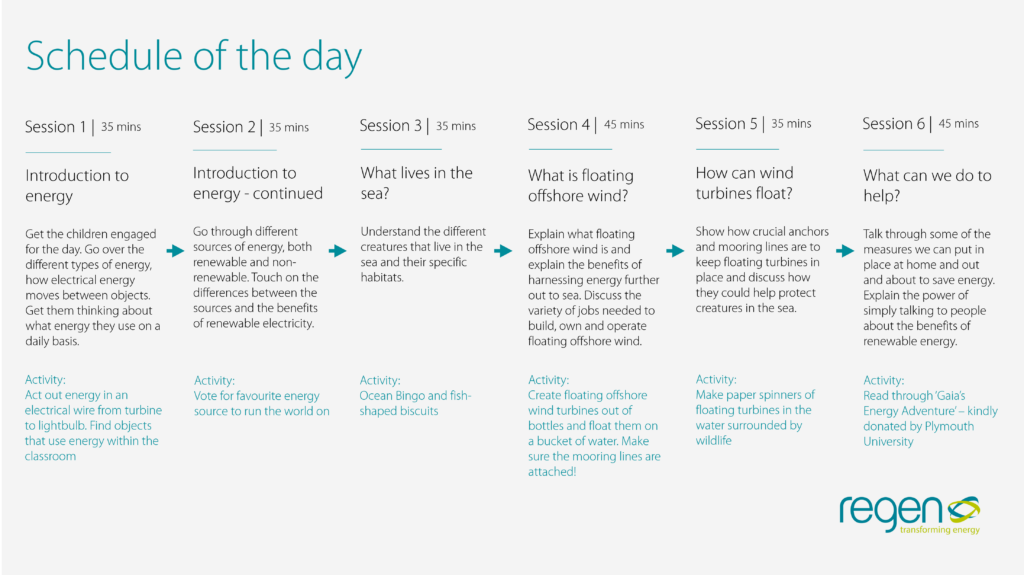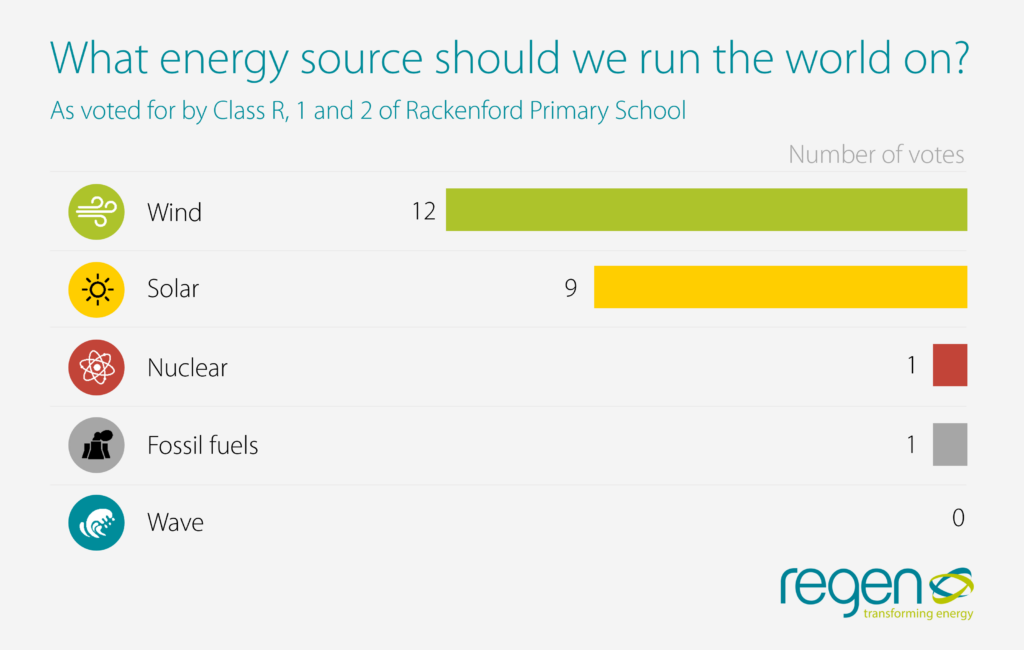In celebration of World Ocean Day, Regen and Simply Blue, a floating offshore wind developer, spent a day talking to primary school children about how we can harness renewable energy from the ocean and how we can protect the creatures that live in it.
As far as most parents or carers are concerned, children and energy go hand in hand. Whether it’s due to a sugar overload or the inevitable 5am wakeup on a Saturday morning, children always seem to have an abundance of energy. For adults, it can be extremely tiring. Yet considering that these ‘little monsters’ will make up the future energy sector workforce, it is extremely fitting.
But how much do children actually know about energy? Do they know what it is? The different types? Its different uses? It’s fair to say that some adults would struggle with the question: “What is energy?”. So how can we expect a six-year-old to understand it, let alone understand how we can harness the ocean to generate it?
To tackle this, Regen and Simply Blue were invited to Rackenford Primary School to talk to Class R, 1 and 2 about energy. As it coincided with World Ocean Day (8th June), we focused on how the ocean environment can provide renewable electricity and how we as individuals can help protect the creatures that call it home.
Making it both engaging and informing for a group of six-year-olds seemed daunting at first, but activities such as ocean bingo, constructing floating [in a bucket] offshore wind turbines and eating fish-shaped biscuits were an outstanding success! The class were amazed at the variety of jobs needed to build, own and operate floating offshore wind – some children were all too impressed to see that they have relatives working in similar roles – and were eager to tell us about the “massive fans” they can see from their window and all the “sun panels” they have on their roofs. The levels of enthusiasm in the room were heartening.
The bonus? We had just as much fun!
However, it wasn’t just the children learning that day. We learnt a lot too. Children will ultimately grow into the adults we mould them to be. As a society, we often use hard-hitting data to show the reality of our warming planet and the need for renewable energy. The class knew a lot more about energy than we initially expected, but when a six-year-old asks “what is climate change?”, the scale of the challenge really hits home. We were conscious of not scaring anyone, given the prevalence of climate anxiety, so it’s important that we remind children of all ages that the transition to renewable energy is a positive move and get them excited about the opportunities it presents both in terms of protecting our climate and jobs, and in understanding the world.
The energy industry can be a bit of bubble at times, so it was refreshing to spend the day talking to people with different perspectives and different priorities (albeit who gets to use the blue pencil first). The transition to net zero is already well underway. Wind turbines, solar panels and EVs are already becoming ‘normal’. Yet there is still more that can be done to bring people outside of the industry along on the journey. We need to challenge ourselves to spend more time speaking to people who aren’t immersed in the transition on a daily basis, as it is only with their support and willingness that we will achieve the UK’s net zero aims. And who knows, we might even learn something along the way.
Interested in hearing more? Reach out to Becky here.



